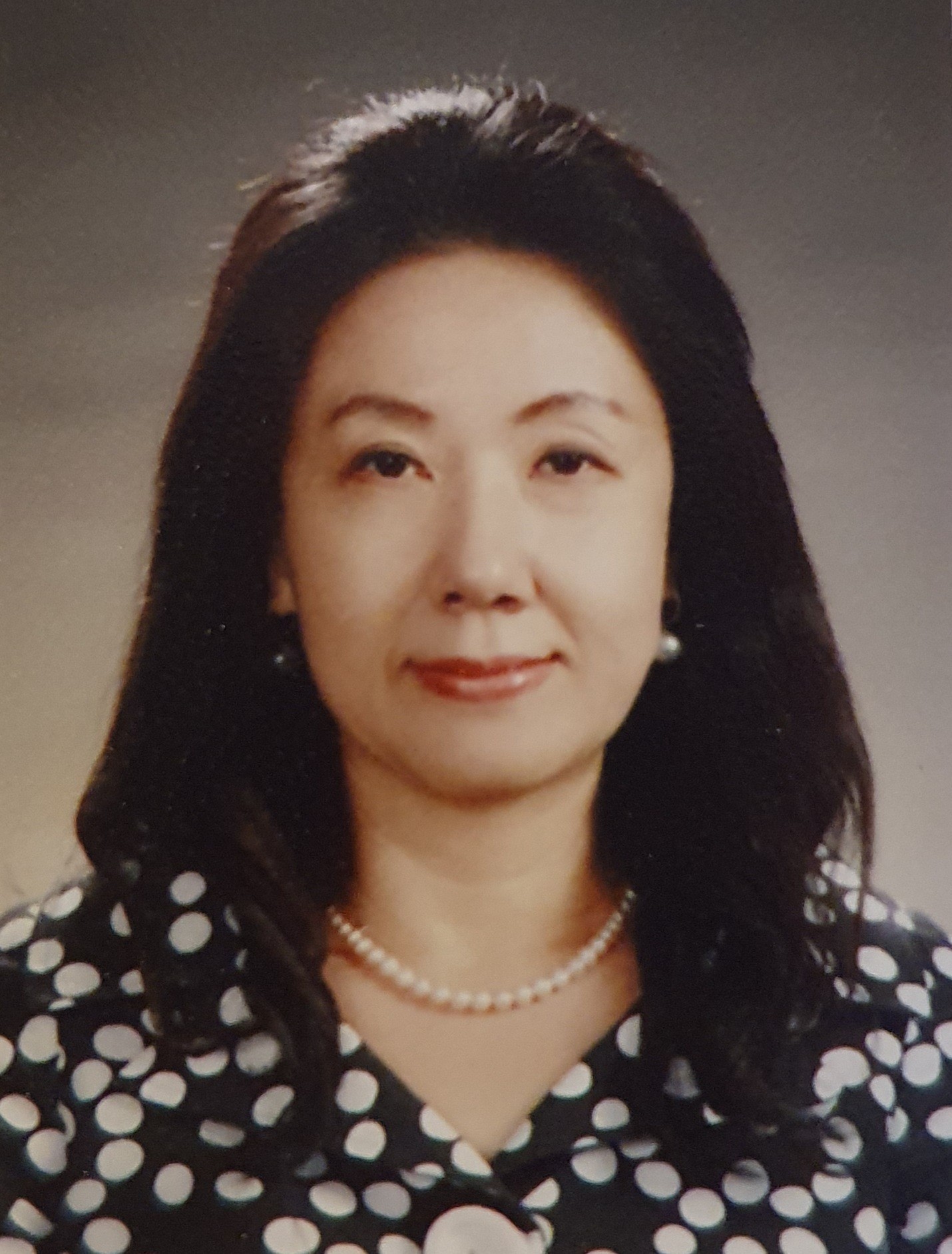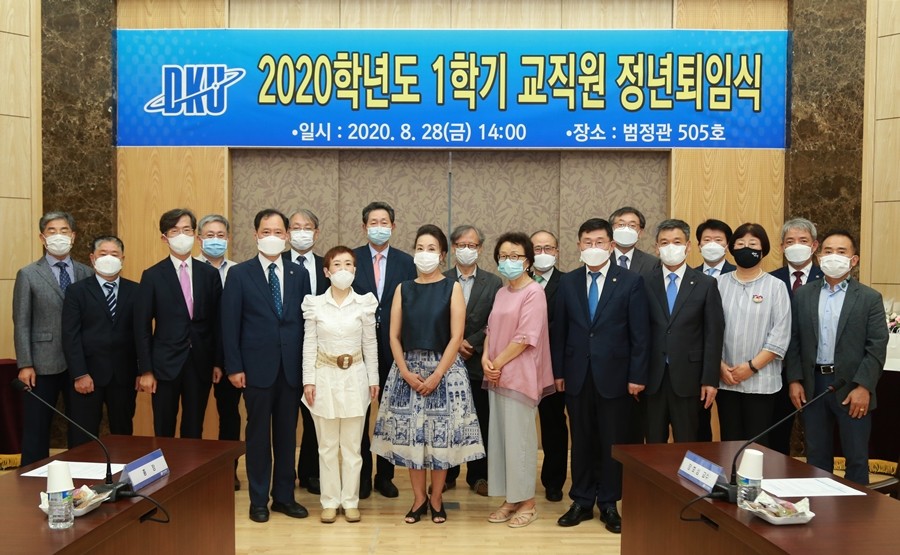The 2020 retirement ceremony for 25 Dankook University (DKU) professors and administrators, including former School President Jang Ho-sung, was held on August 28, at Beomjeong Hall (University Administration Building). School President, Kim Su-bok expressed his deep appreciation for the contributions each retiring faculty member had made to the growth of DKU. In honor of their work, he presented each distinguished staff member with a meritorious plaque and government prize. The retiring faculty members all agreed that they were always proud of DKU and expressed appreciation to all their former students and colleagues.
 |
| ▲ Professor Lee Eun-soon. (Photo from DKU) |
The Dankook Herald interviewed retiring faculty member, Professor Lee Eun-soon from the Dept. of Russian Language. Appointed in 1991, she was proficient in Russian translation and published a number of Russian books for middle and high school students. She mainly studied Russian syntax and syntactic theory.
1. What made you major in Russian?
A: At first, I was going to major in English or German, but when I was a senior in high school, a Korean language teacher who was fluent in Russian recommended I study Russian at Hankuk University of Foreign Studies. At that time, the world was caught up in the Cold War, and Russian was a rare language skill to have. It was only available to study at Hankuk University of Foreign Studies. Also, my mother studied Russian in Phyeongan-do before the Korean War and often told me many expressions in Russian when I was young. Therefore, Russian was not a strange language for me, so I tried to become a Russian translator or diplomat.
2. Over the years, you've seen many ups and downs at the school while working here at DKU. Can you briefly tell us about the transition of DKU?
A: I have worked at DKU since 1991. Back then, DKU had two campuses, one located in Hanam-dong and the other in Cheonan. The Cheonan campus was the first university in Cheonan and helped solve the population density problem in Seoul. Jang Choong-sik, President of the university at the time, wanted to make the Cheonan campus more powerful, so made a lot of efforts to promote the location. However, the Hanam campus was in the middle of Seoul conveniently located, so students had a high preference for this site. After establishing the college of Medicine, Korea was hit by a financial crisis where the IMF (International Monetary Fund) was forced to get involved. As a result, the President opted to sell the Hanam campus and asked faculty members to return their bonuses. We moved the Hanam campus to Jukjeon and the Cheonan campus remained intact..
3. You have seen many students over your 29 years and 6 months of service. Do you have any memorable ones?
A: I once lent a student tuition fees and he is the most memorable one for me. He was unable to pay his tuition for personal reasons asked me for help, so I lent him the money. Fortunately, that student was able to graduate, but I did not get any news from him for a long time. However, he eventually reached out to pay back the money. When returning it, he said, “I could only graduate because of your help.” That student is the most memorable one for me.
4. Please tell us how you feel about this honorable ending to your career.
A: I was once quoted as saying, “I have been married to Dankook University and raised Dankookians (students of DKU)”. I have shared joys and sorrows with many Dankookians, but now I am feeling like a mother-in-law who has left the keys to the barn to her daughter-in-law. I am disappointed to have spent my last semester as an on-line lecturer, but I did my best and I am pleased with that. Over the years, I have raised about 1000 Dankookians and I believe they are all doing well as productive members of society, so it was worthwhile doing this job.
5. Any last words for Dankookians?
A: In most languages, including Korean, Russian, and English, there is a morpheme that indicates past and present, but the future tense does not exist in its own form. For example, when we represent future tense, we use auxiliary ‘will’ which means trying to make something happen by using mental effort. A sentence “I will do it” means I have the willingness to do something. The future does not just happen. It depends on how strong a will you have. I hope Dankookians have a strong will to control their own lives and become the main characters in the future having lived hard in the present.
 |
| ▲ Retired retirees and President Kim Soo-bok are taking photos at the retirement ceremony for faculty members in August 2020. (Photo from DKU) |
Without the efforts of faculty members, Dankookians would not able to concentrate on their studies and DKU would not have been able to exist. Congratulations to the 25 DKU retirees who have completed an honorable end to their teaching careers.
정예지, 박유정 dankookherald@gmail.com

![[Campus Magnifier] Let's Surf the Library!](/news/photo/202404/12496_1765_4143.jpg) [Campus Magnifier] Let's Surf the Library!
[Campus Magnifier] Let's Surf the Library!
![[Campus Magnifier] Let's Surf the Library!](/news/thumbnail/202404/12496_1765_4143_v150.jpg)





